France-Cyprus leaders in maritime innovation, says French Ambassador on EONIOS project
08:26 - 25 February 2025
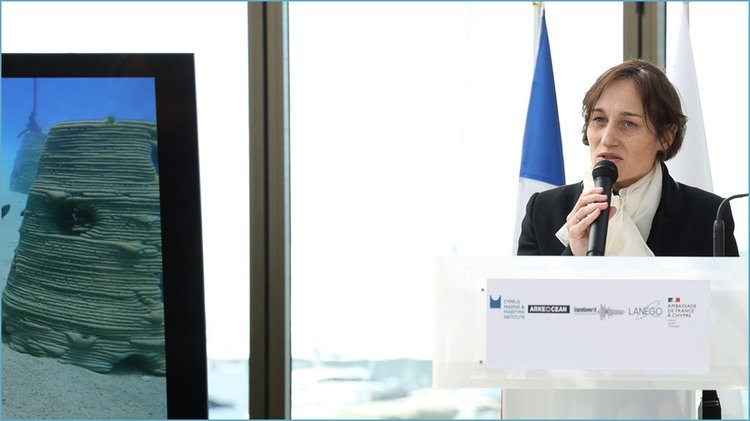
France and Cyprus are reinforcing their partnership in addressing global challenges, positioning themselves as leaders in maritime science and innovation, the Ambassador of France in Cyprus, Clélia Chevrier Kolačko, said.
She was speaking during a live demonstration taking place at the Ayia Napa marina in the framework of the EONIOS project for coastal monitoring, restoration and protection using bio-enhancing underwater nodes, co-developed by Arkeocean and Lanego from France, and the Cyprus Marine and Maritime Institute (CMMI) and SignalGeneriX from Cyprus, with the support of the Embassy of France in Cyprus.
In her introductory address on 24 February, the French Ambassador said that EONIOS is a groundbreaking initiative focused on advancing marine technology and environmental sustainability through the development and deployment of autonomous underwater vehicles (AUVs).
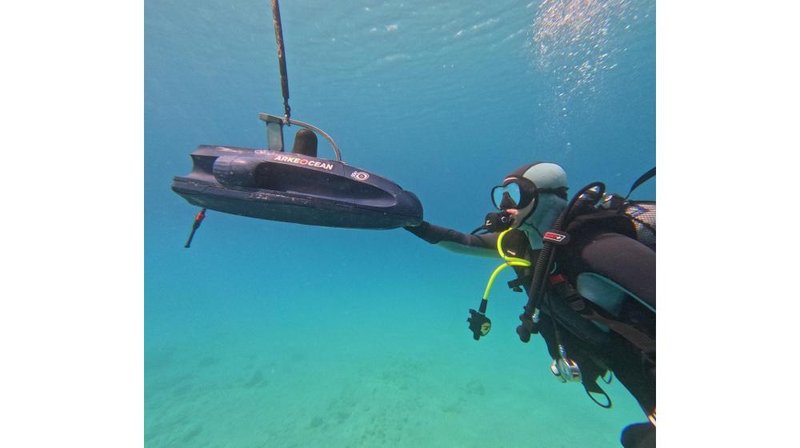
She added that the project is not just about technology and innovation, but also about strengthening cooperation between France and Cyprus, symbolising a deepening of the two countries’ bilateral relations and blending expertise in technology and marine sciences with Cyprus’ strategic location in the Eastern Mediterranean.
France-Cyprus partnership
“By working side by side, France and Cyprus are reinforcing their partnership in addressing global challenges, while also positioning themselves as leaders in marine science and innovation”, she stressed.
She added that today’s demonstration is an example of cooperation that can be applied to defence, especially for critical undersea infrastructure surveillance and protection, the environment and biodiversity, shipping, energy and many other areas.
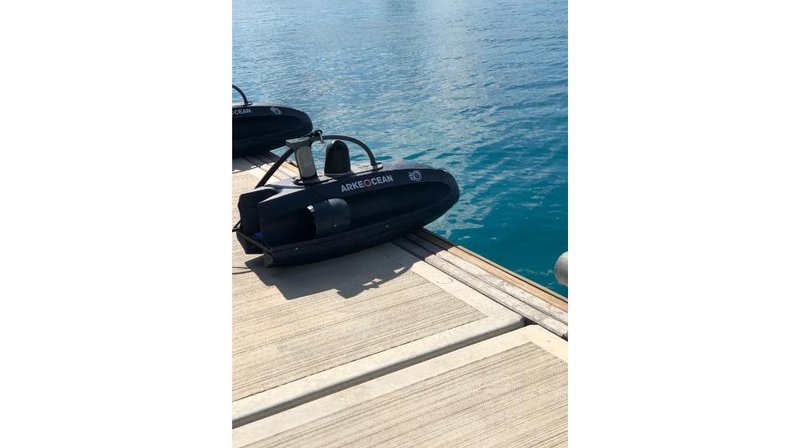
“That is the strength of this project. It illustrates all the possibilities for a broad cooperation between France and Cyprus. It is also an example of what is possible when we leverage the power of innovation to defend ourselves, protect, preserve, and explore our maritime environment” she noted.
The French Ambassador also referred to challenges faced by oceans, such as unprecedented threats from malicious actors, climate change, pollution, overexploitation, adding that all of these will be addressed during the 3rd United Nations Oceans Conference (UNOC 3), organised by France and Costa Rica in Nice next June, with three main priorities, as she noted, namely raise the level of ambition for ocean protection, support the development of a sustainable blue economy and strengthen and foster better political decision-making regarding marine resources.
Technological advancements driving sustainable solutions
On her part, Deputy Permanent Secretary of the Directorate-General for the Environment Eliana Tofa Christidou said that EONIOS stands as a testament to how technological advancements can harmonise with nature-based infrastructure, driving sustainable solutions for the future.
“Today’s demonstration is a clear illustration of how autonomous marine technologies can revolutionise environmental monitoring and protection. The deployment of AUVs represent a visionary leap towards intelligent marine monitoring. This will enhance our capacity for real-time data collection and continuous ecosystem surveillance. By integrating advanced robotics with nature-based solutions, we reaffirm our commitment to safeguarding our marine ecosystems,” she noted.
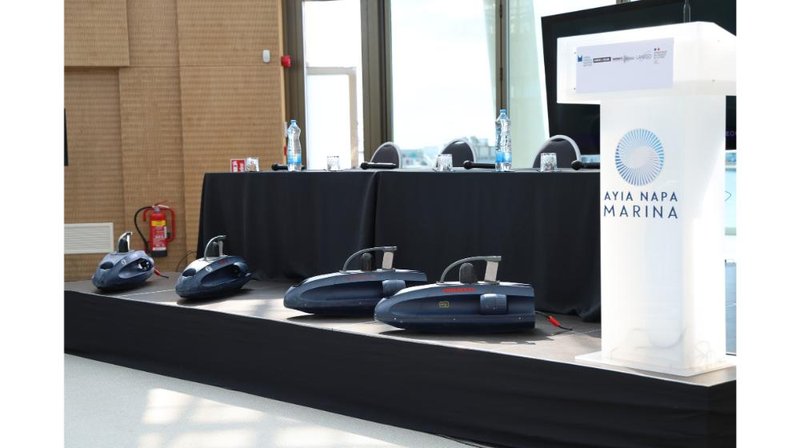
Enriching protected areas
CMMI CEO Zacharias Siokouros said that this is a new, unique technology at a global level, which aims to protect marine protected areas, with submarines deployed in collaboration with artificial reefs, enriching a protected area with marine life and at the same time ensuring the protection of the area.
He also expressed the hope for a demonstration to be organised again at the same site by the end of the year, whereby the submarines will be able to patrol a specific area, monitor the environmental data and at the same time give warning in case of danger.
He explained that the system is planned to work with floating signal platforms, which will be able to collect solar energy that will be then sent to a docking station on the seabed through which the submarines will be charged.
During the demonstration that followed, three micro-submarines were submerged in the waters in front of the marina and were instructed to follow a signal emitted from an inflatable boat.
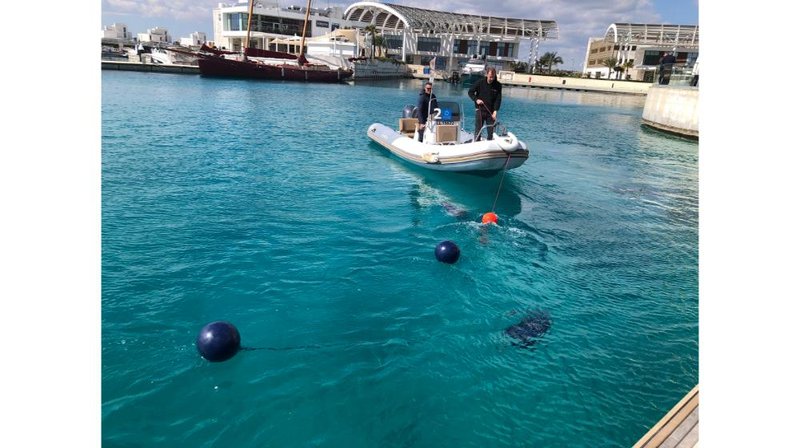
Micro-AUV swarm system
As explained by Arkeocean’s co-founder Tamara Brizard, the submarines are part of a micro-AUV swarm system with AUV docking stations integrated in nature-based artificial reefs.
She added that the project will help protect designated underwater areas and develop marine biodiversity by combining intelligent artificial reefs and permanent underwater resident drones to provide 24/7 physical protection of sites.
AUVs can stay up to a month underwater, using a proprietary acoustic antenna technology to navigate, with a depth range between 300 and 3,000 meters, she further noted.
She also highlighted the swarm element, meaning the operation of hundreds of small AUVs less than one metre long, expressing the view that “this is the missing tool needed to explore oceans on a great scale.”
(Source: CNA)

